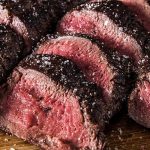 Although venison, venom, and Venus may not seem to have much in common, they derive from the same Indo-European source, a word pronounced something like wen and meaning to desire. This Indo-European source developed into a cluster of Latin words, all beginning with ven and all somehow maintaining their ancestor’s sense of desire. Venari, for example, emerged in Latin meaning to hunt, the connection being that when you hunt for something, you desire it. Via French, this word gave rise to the word venison, which—when it first appeared in English in the fourteenth century—referred to the meat of any animal that had been killed in a hunt; later on, in the eighteenth century, the word narrowed in meaning and came to refer specifically to the meat of a deer. Similarly, Venus emerged in Latin as the name of the Roman goddess of love because love was seen to be synonymous with desire; later on, the Romans named the second planet from the sun after Venus because they identified her with the Greek goddess, Aphrodite, who had previously had dibs on that lusty planet. Finally, the word venenum emerged in Latin as the name for a love potion, a drink designed to spark desire. In time, however, and probably for good reason, such potions came to be seen as little better than poison, which was the sense possessed by venom—the derivative of venenum—when it appeared in English in the thirteenth century. Incidentally, the Indo-European source of these Latin words also gave rise, after evolving through the Germanic family tree, to the word win, the connection being that you can win something only if you desire it. All these related words—venison, venom, Venus, and win—are of course well-established in English; however, considering deer meat is becoming an increasingly rare menu item, the word venison may, in a few generations, be as unfamiliar as chevaline.
Although venison, venom, and Venus may not seem to have much in common, they derive from the same Indo-European source, a word pronounced something like wen and meaning to desire. This Indo-European source developed into a cluster of Latin words, all beginning with ven and all somehow maintaining their ancestor’s sense of desire. Venari, for example, emerged in Latin meaning to hunt, the connection being that when you hunt for something, you desire it. Via French, this word gave rise to the word venison, which—when it first appeared in English in the fourteenth century—referred to the meat of any animal that had been killed in a hunt; later on, in the eighteenth century, the word narrowed in meaning and came to refer specifically to the meat of a deer. Similarly, Venus emerged in Latin as the name of the Roman goddess of love because love was seen to be synonymous with desire; later on, the Romans named the second planet from the sun after Venus because they identified her with the Greek goddess, Aphrodite, who had previously had dibs on that lusty planet. Finally, the word venenum emerged in Latin as the name for a love potion, a drink designed to spark desire. In time, however, and probably for good reason, such potions came to be seen as little better than poison, which was the sense possessed by venom—the derivative of venenum—when it appeared in English in the thirteenth century. Incidentally, the Indo-European source of these Latin words also gave rise, after evolving through the Germanic family tree, to the word win, the connection being that you can win something only if you desire it. All these related words—venison, venom, Venus, and win—are of course well-established in English; however, considering deer meat is becoming an increasingly rare menu item, the word venison may, in a few generations, be as unfamiliar as chevaline.
The succulent meat derived from a deer is commonly referred to as venison. Buck venison, widely regarded as superior to its doe counterpart, is available in season exclusively from October to December.
